Officials, experts gather at Kuala Lumpur forum to discuss opportunities and strengthen bilateral ties
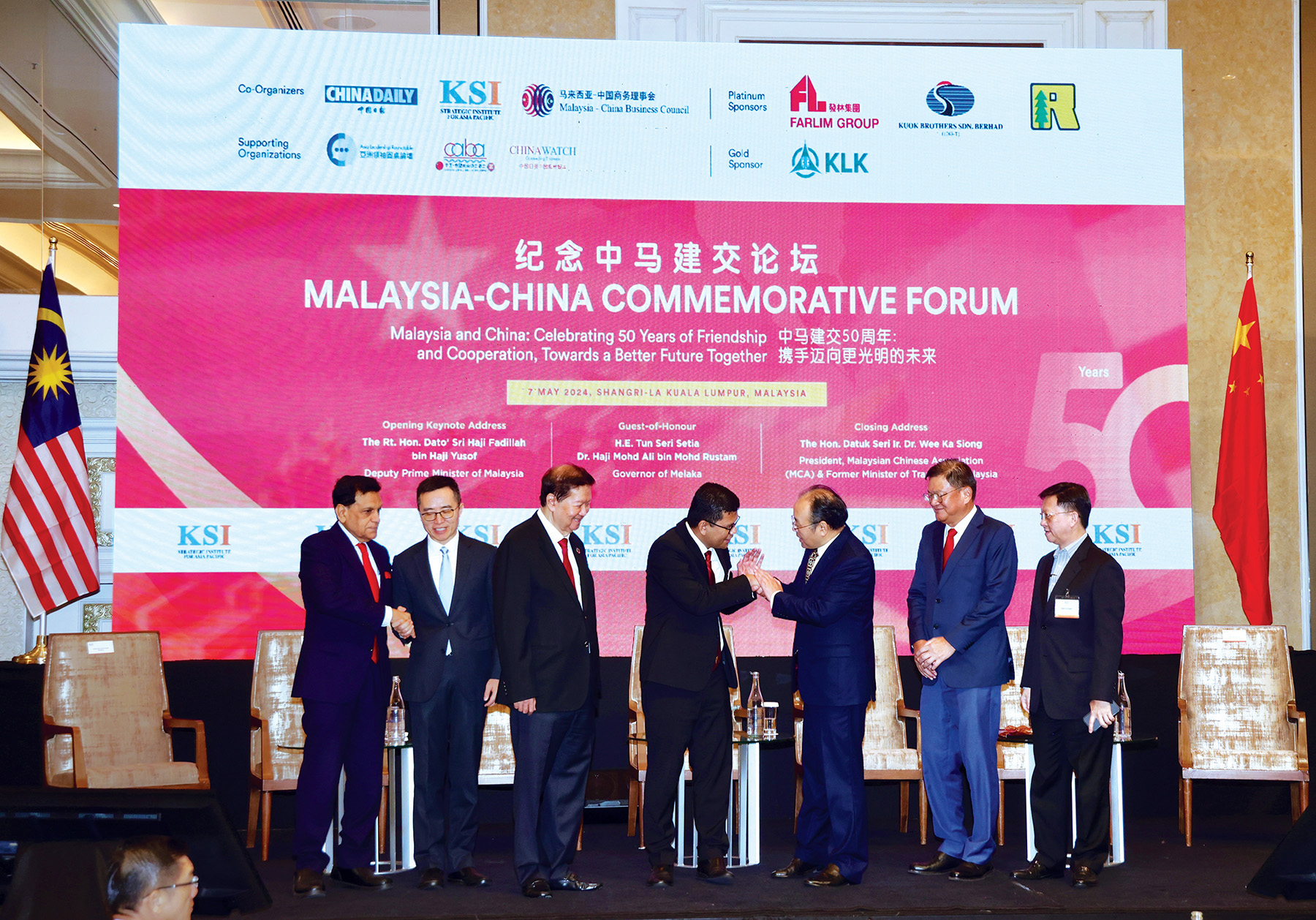
Relations between China and Malaysia have played a pivotal role in regional cooperation, with the partnership continuing to set a precedent for China’s engagement with the Association of Southeast Asian Nations.
The remarks were made by the Chinese Ambassador to Malaysia Ouyang Yujing at the Malaysia-China Commemorative Forum in Kuala Lumpur on Tuesday, while highlighting the historical significance of Malaysia as the first founding member of the 10-member ASEAN regional grouping to establish diplomatic ties with China on May 31, 1974.
READ MORE: Building on the milestones in China-Malaysia ties
He described that moment as the opening of a “new chapter in China-Malaysia relations that ushered China-ASEAN relations into a new era”.
“In the coming 50 years, China and Malaysia will hold hands even closer in forging ahead in co-building the China-Malaysia community with a shared future,” said Ouyang, noting that this year marks the Year of China-Malaysia Friendship.
The forum, titled “Malaysia and China: Celebrating 50 Years of Friendship and Cooperation, Towards a Better Future Together”, was co-organized by China Daily, the KSI Strategic Institute for Asia Pacific, and the Malaysia-China Business Council. It was attended by more than 200 representatives from both countries.
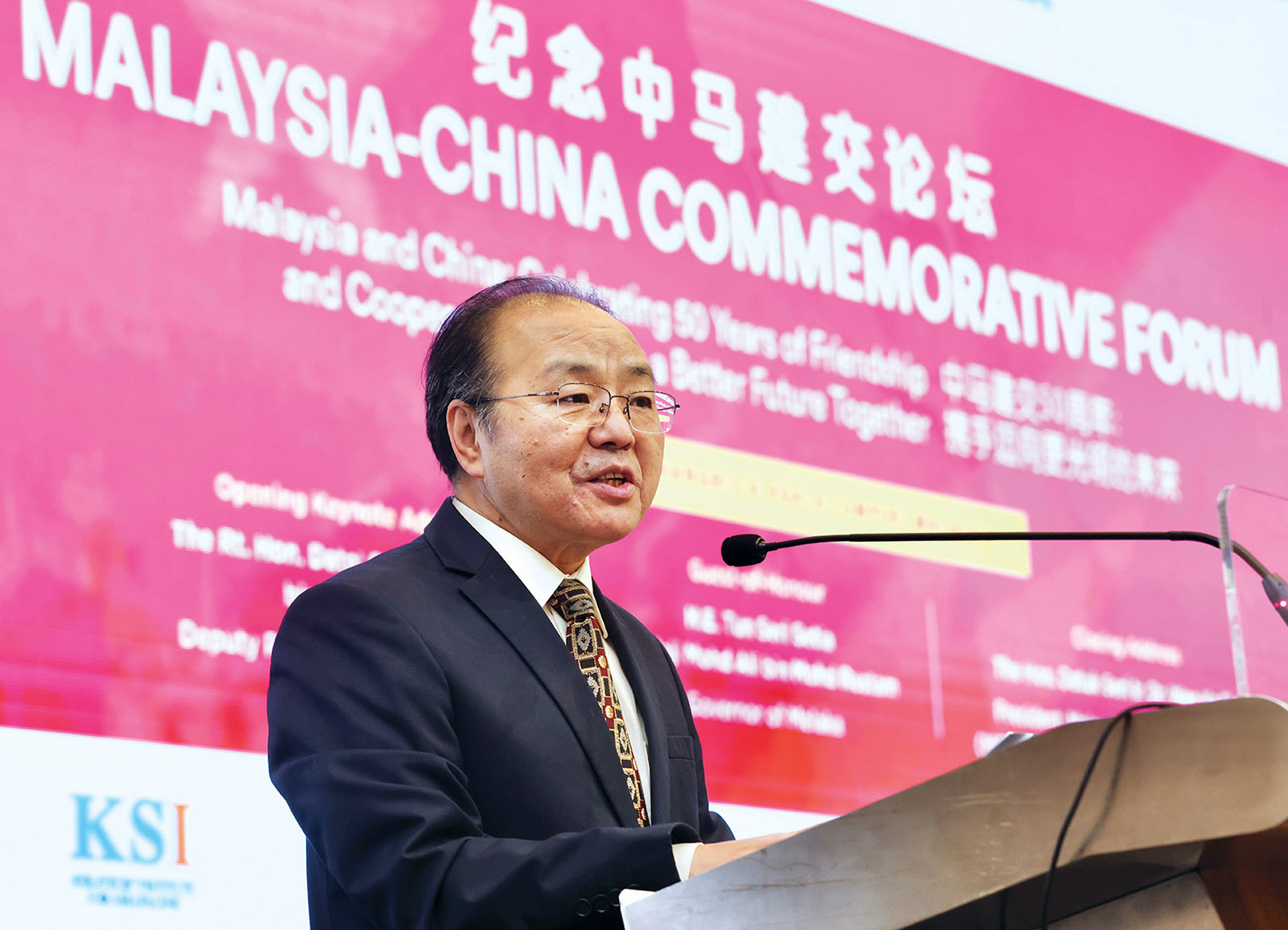
Ouyang stressed that high-level leadership plays a fundamental role in fostering leapfrog developments in China-Malaysia relations, and comprehensive and practical cooperation is the essential driving force in upgrading the relations in all fields.
For example, the mutual visa-free entry policy implemented at the end of last year has seen the number of Chinese tourists to Malaysia exceeding 270,000 monthly, he said. During the recent five-day International Workers’ Day holidays alone, the number of Chinese mainland visitors to Malaysia surged by more than 80 percent.
Noting Chinese President Xi Jinping announced on Monday that China will extend visa exemption entry for citizens from 12 countries, including Malaysia, until the end of 2025, Ouyang said this will further promote exchange and cooperation between China and Malaysia.
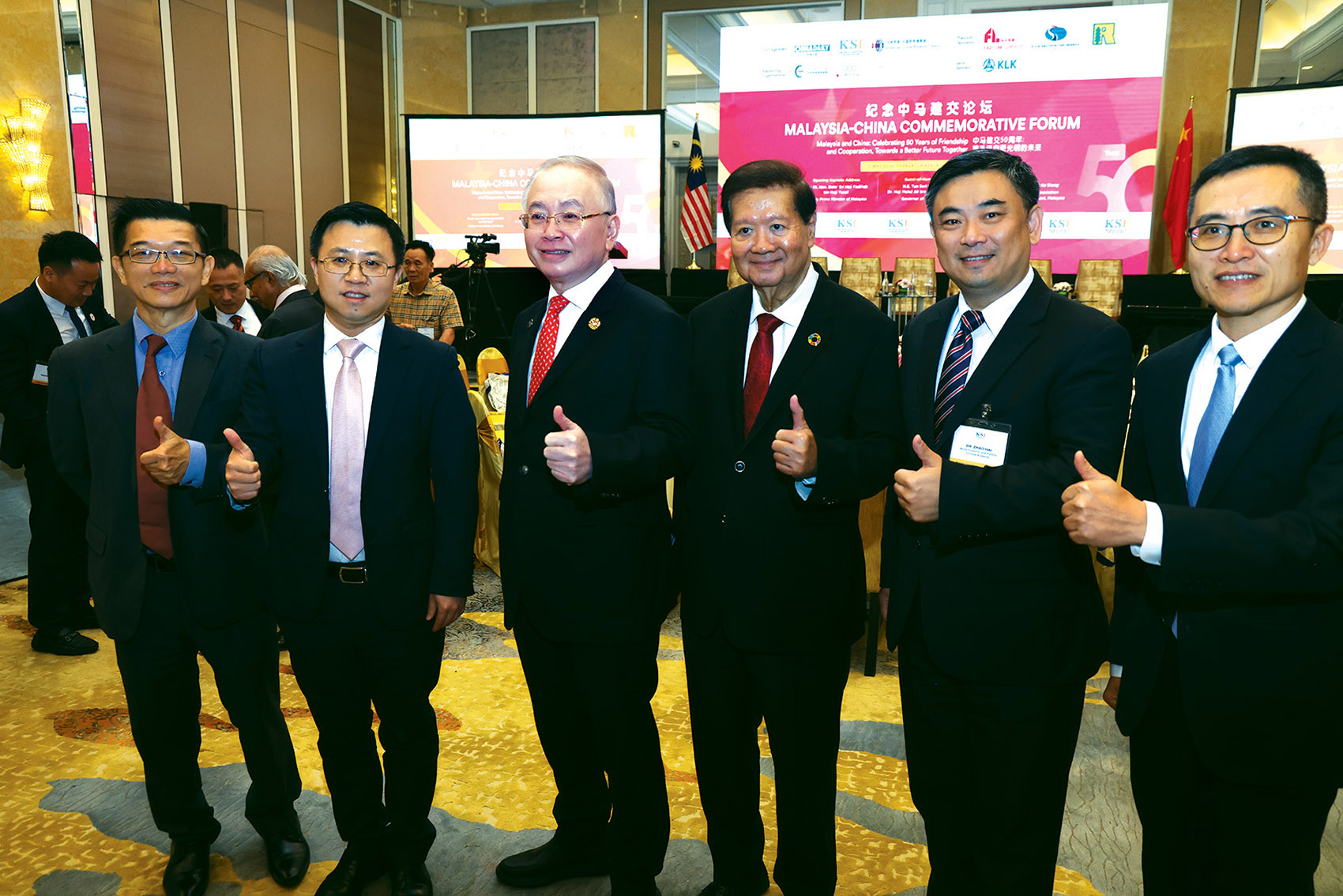
Akmal Nasrullah Mohd Nasir — Malaysia’s deputy minister of energy transition and water transformation — who spoke at the forum on behalf of Malaysian Deputy Prime Minister Fadillah Yusof, described China as a “reliable friend and partner”.
“Last year, we saw 32 high-level visits between the two countries,” said Akmal, adding that the visits have contributed to strengthening bilateral ties and promoting closer people-to-people relations.
“There remains ample opportunity for both sides to consolidate further and expand the excellent ties,” he said.
Akmal highlighted the alignment of Malaysia’s Madani economic framework, introduced in 2023, with China’s vision of a community with a shared future for mankind, as articulated by President Xi in 2013.
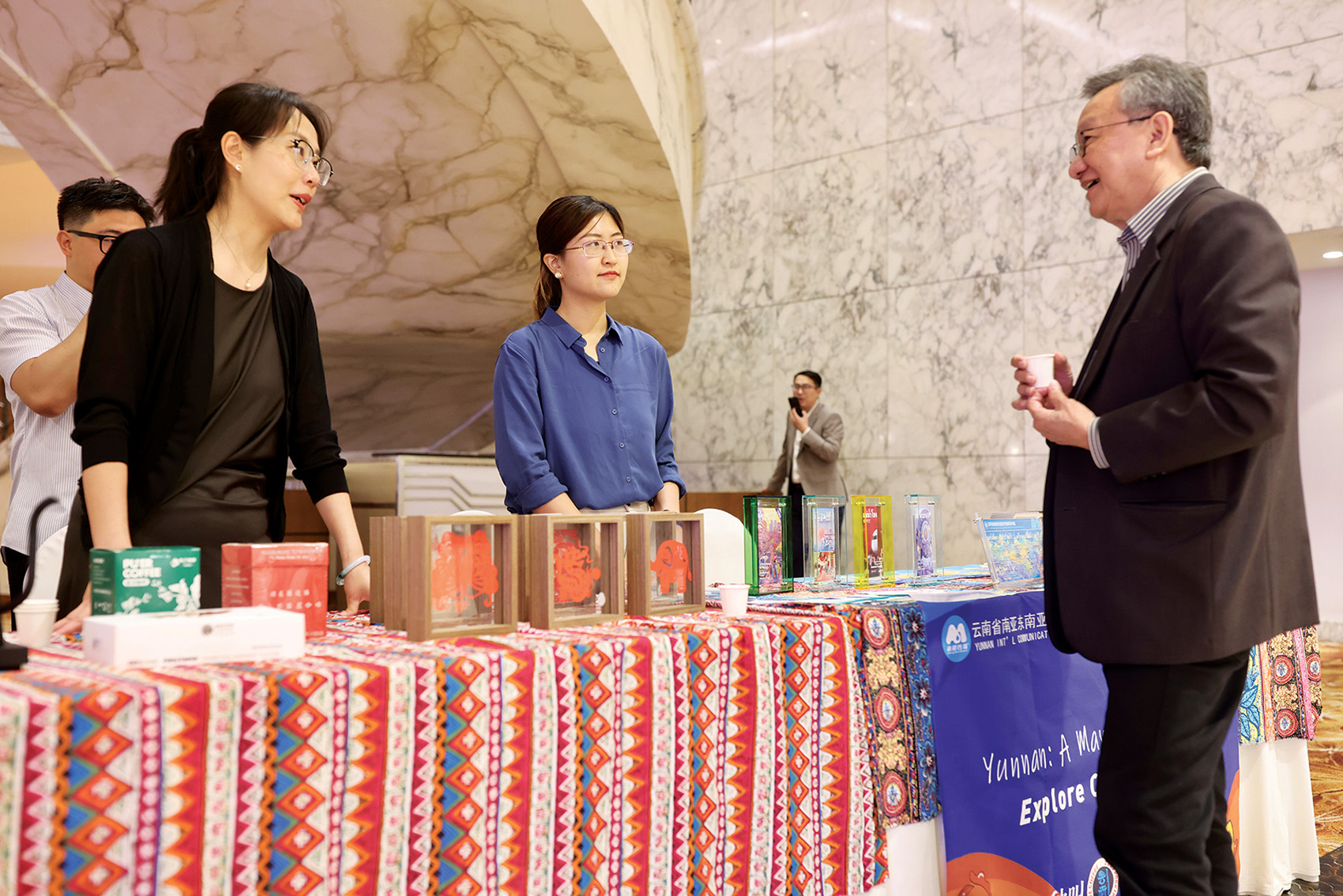
He also recognized China’s significant role as Malaysia’s largest trading partner for the past 15 years, and the impact of the Belt and Road Initiative on strengthening bilateral connectivity through key projects, such as the “Two Countries, Twin Parks” and the East Coast Rail Link, that have contributed to economic growth.
Akmal said both sides can expand and accelerate collaboration in infrastructure, the digital economy, green development, new energy vehicles, and rare earth, which will offer growth and sustainability benefits.
Representatives of the organizing bodies also gave welcoming speeches, including Zhou Li, deputy editor-in-chief of China Daily; Alvin Tee, executive director of the Malaysia-China Business Council; Michael Yeoh, president of the KSI Strategic Institute for Asia Pacific; and Majid Khan, chairman of the KSI Strategic Institute for Asia Pacific.
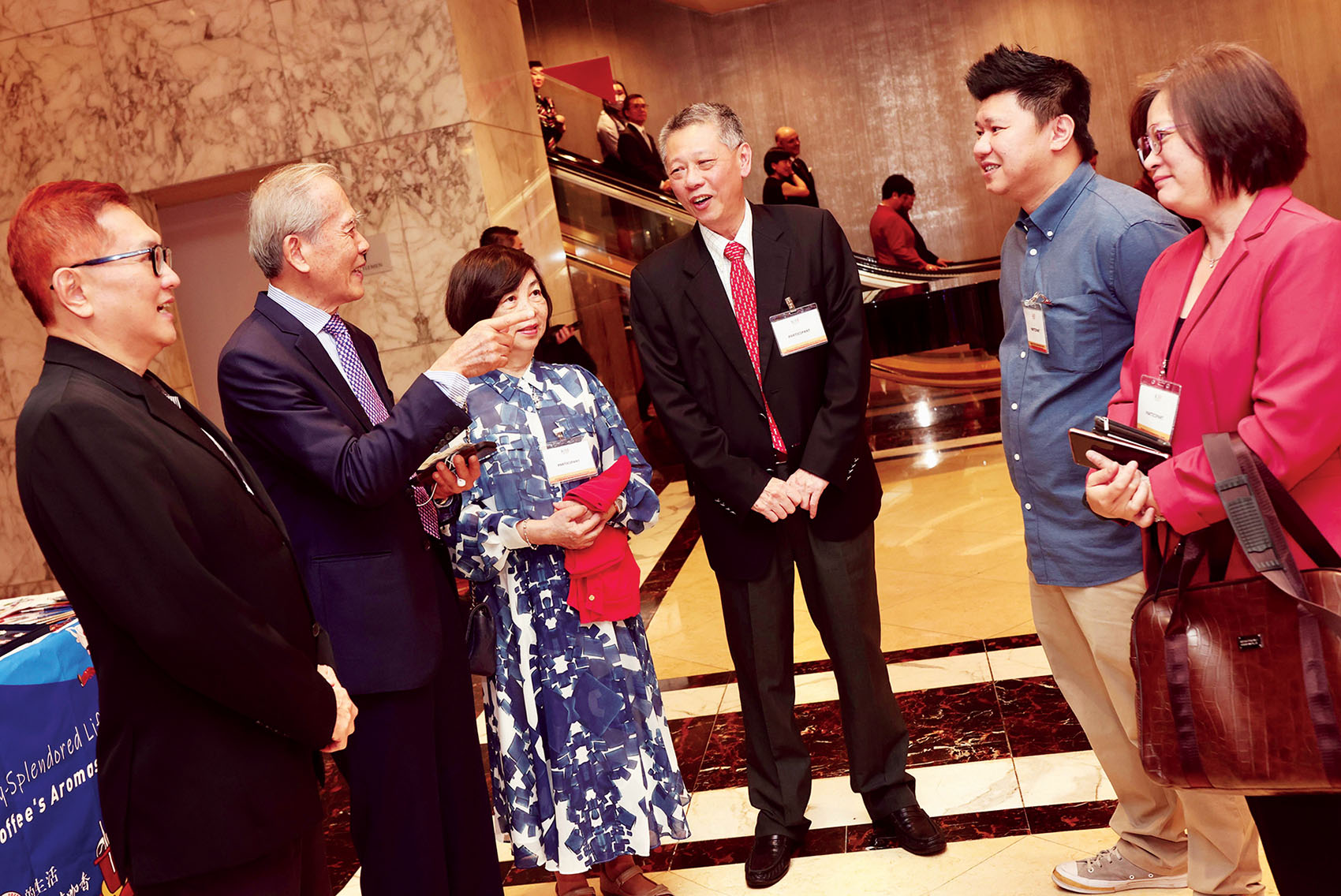
The forum brought together government officials, industry leaders and research experts to share their insights into topics like “Working Together for Green Growth and Digital Economy”, “Driving Future Bilateral Partnership between Malaysia and China”, and “Enhancing Malaysia-China Partnership Building for the Past 50 Years”.
Mohd Ali Rustam, governor of the Malaysian state of Melaka, also attended the forum and presented the Special Malaysia-China Business Excellence Awards.
ALSO READ: Working together for green growth, digital economy
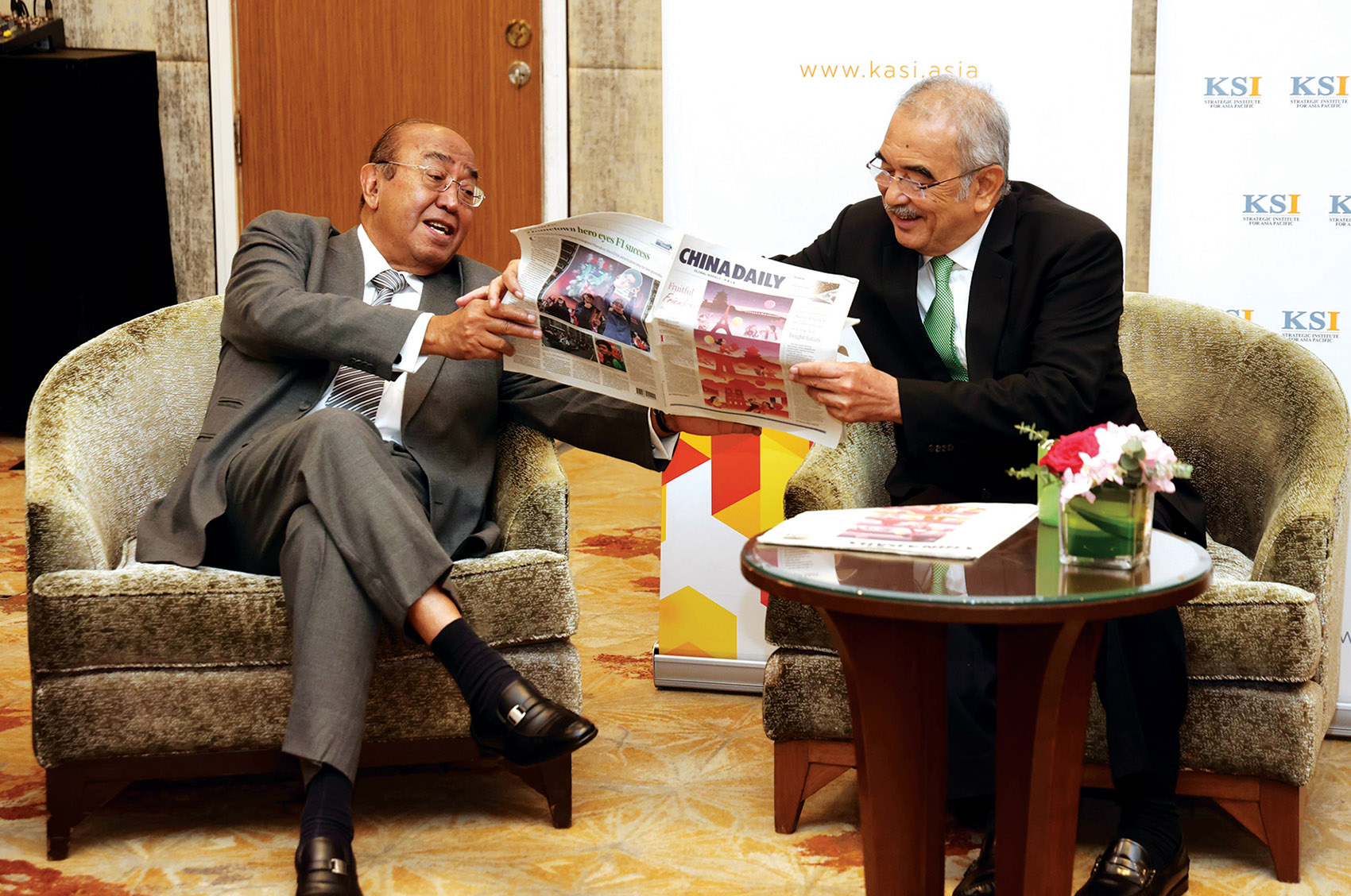
In his closing remarks, Wee Ka Siong, president of the Malaysian Chinese Association and former minister of transport of Malaysia, said the Belt and Road Initiative has offered a unique opportunity to strengthen cooperation between China and Malaysia. “Let us work together to ensure high-quality Belt and Road projects that will deliver tangible benefits for both our nations.”
These include fostering the transfer of innovation and knowledge, building infrastructure that connects all people and economies, and creating a level playing field for businesses on both sides, Wee said.


